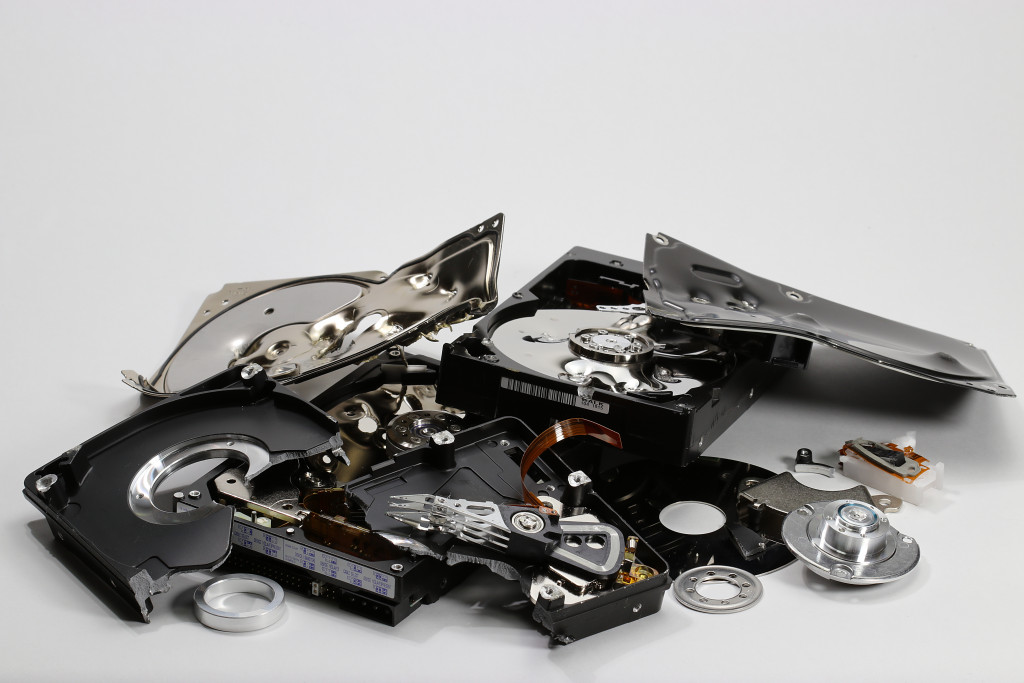 When people shop for a new laptop or desktop PC, one of the tech specs that they consider is storage. Two of the most popular forms of storage are solid-state drives (SSDs) and traditional hard-disk drives (HDDs). These internal devices serve as the backbone of most, if not all, all storage applications, including cloud storage, data centers that host the internet, NAS servers and external hard drives.
When people shop for a new laptop or desktop PC, one of the tech specs that they consider is storage. Two of the most popular forms of storage are solid-state drives (SSDs) and traditional hard-disk drives (HDDs). These internal devices serve as the backbone of most, if not all, all storage applications, including cloud storage, data centers that host the internet, NAS servers and external hard drives.
If you’re on the market for a new computer, you might be thinking about whether getting a PC with an HDD is still worth it. After all, there are a ton of laptops and desktops are fitted with an SSD. So should you still buy a PC with an HDD?
HDDs and SSDs: A Comparison
Before we get to the answer, let’s first talk about the key differences between the good old hard-disk drive and the solid-state drive.
An HDD typically consists of a platter (a metal disk that comes with a magnetic coating), an arm and a stepper motor. The platter, which resembles a shiny CD, stores the data. The arm, on the other hand, is responsible for accessing the data. It has a small head at the tip that writes and reads data as the disk spins underneath, converting 1s and 0s into files and vice versa.
The time needed to access data will depend on the speed of the hard disk’s rotations per minute or RPM. The faster the RPM, the less time it takes to write and read data.
An SSD, on the other hand, doesn’t use a disk to access data. Instead, it stores information using flash memory modules. This means that the device stores all the data in integrated circuits.
The physical appearance of a solid-state drive is different from a hard-disk drive. Many SSDs on the market have a size and shape of a stick of gum. Others are even as tiny as a postage stamp. What’s more, there are no moving components.
You might now be asking yourself, “Which is better?”
Let’s check these two options out in these categories:
Speed
SSD has the edge between the two storage devices. Solid-state drives outpace hard-disk drives across the board. When you’re running a desktop or laptop PC with an SSD, you can look forward to shorter wait times during startup and fewer delays when performing heavy computing tasks or opening apps.

Price
Solid-state drives are more costly than hard-disk drives in terms of dollar per gigabyte. An internal, two-and-a-half-inch HDD with a 1 TB storage capacity costs between $40 and $60. On the other hand, the most affordable SSDs of the same form factor and capacity start at approximately $100. This translates to 10 cents per gigabyte for the SSD and 4 to 6 cents per gigabyte for HDD users.
Given that hard drives use older and more established technology, they’ll likely remain less costly for the foreseeable future. Although the price per gigabyte is narrowing between low-end SSDs and HDDs, the extra bucks you spend for the SSD may push your PC price over the budget.
Noise
SSDs are non-mechanical, which means that they don’t make any noise at all. HDDs, on the other hand, will emit noise when it’s in use. The read arm ticks back and forth, and the drive platter spin. Faster hard-disk drives will make more noise.
Lifespan
Although SSDs will wear out over time, you’re more likely to discard them for obsolescence before you begin running into read/write errors. This is primarily due to a command technology that optimizes read/write cycles dynamically.
HDDs, unfortunately, will wear out faster due to constant use. After all, they use physical recording methods.
Having Trouble Choosing? Go for Both
Although SSDs are fast, their capacity can be limited. If you need a lot of storage space to accommodate recorded TV shows, videos, music and photos, you’ll want to go with an HDD as a secondary storage device.
When building a desktop PC or shopping for a laptop, you should aim for a dual-drive system. This configuration is the best of both worlds. You keep your operating system, editing program and some games on SSD. Then, store your images, videos and non-essential files on your HDD.
Some motherboards allow for more than two drives. This means that you can keep adding storage to fulfill your needs. If speed is important to you, upgrade to a faster drive. On the other hand, you can get an HDD if you find yourself running out of space.
Is buying a PC with HDD still worth it? If you’re on a budget, an HDD may just be enough for you. If you have money to spare, though, consider getting an SSD as your primary, then install an HDD as a backup.
